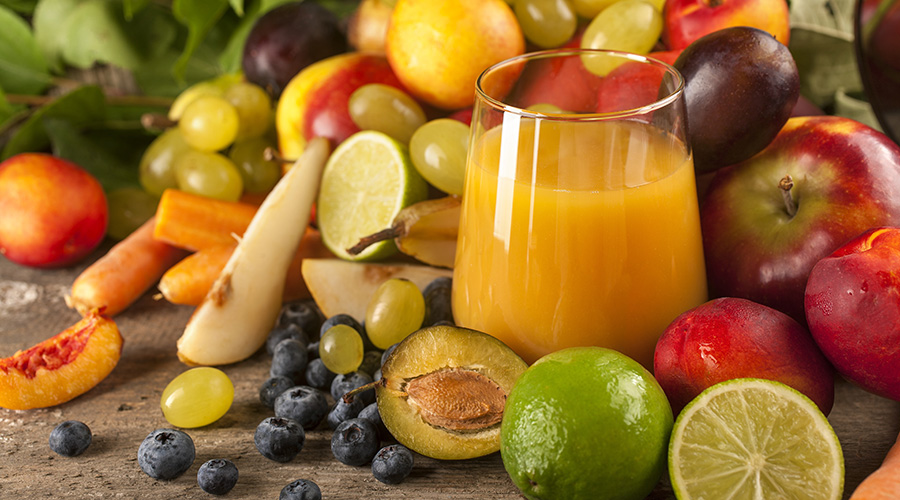The importance of consuming fruit and vegetables to stay healthy is now well known, as is the recommendation to consume at least 5 servings of these per day. These 5 portions must make up at least 600g of food, and are usually divided into 3 portions of fruit and 2 portions of vegetables.
In daily life, eating your recommended intake every day is not always an easy task, especially since 600g is just the minimum, and actually, “the more you eat, the better”! In this respect, replacing a portion of fruit with a portion of fruit juice may seem like an easy recipe for success. In many countries the Guidelines for Healthy Eating do in fact state that replacing a portion of fruit with fruit juice is acceptable.
But what is a fruit juice? First of all, the difference between a juice, a nectar and a fruit-based drink must be clearly established. In the eyes of the law, “fruit juice” is simply the product of fruit pressing. Sugars cannot be added to fruit juices, and any sugars they do contain must only have come from the original fruit. Indeed, the composition of a fruit juice does not stray too far from that of the original fruit, with the exception of its fibre content, which is still present in juice, just in much smaller amounts. In some cases, industrial pressing is better than home pressing, because it allows a greater extraction of nutrients.
But nectars and fruit drinks tell a different story, since they are not “100% fruit”. These contain varying amounts of fruit: the exact percentage can be found on the label. What’s more, extra sugars can be added to these products.
That said, it is clear that these products have very different nutritional values compared to other, and that you can only use real juice to replace your daily recommended fruit portions. As for the possible problems related to the consumption of fruit juices, several studies show that low/moderate consumption does not increase the risk of obesity, diabetes or other diseases. It actually seems to have a protective effect on cardiovascular diseases, in particular strokes.
Therefore, careful consumption of fruit juices is not a bad thing; in fact it can be recommended, particularly if it is a replacement for sugary drinks. Obviously, as with all things, in moderation!
Alessandra Bordoni
Department of Agricultural and Food Sciences
University of Bologna


